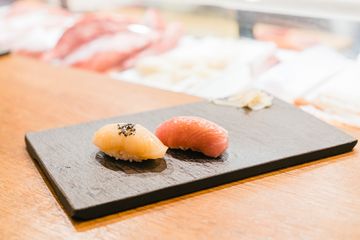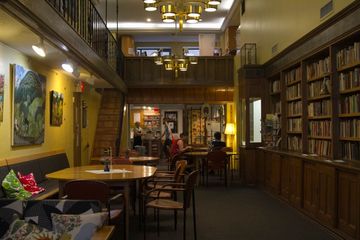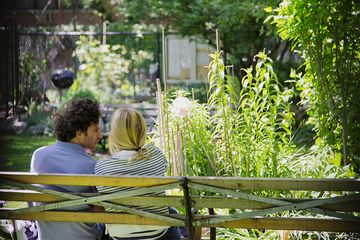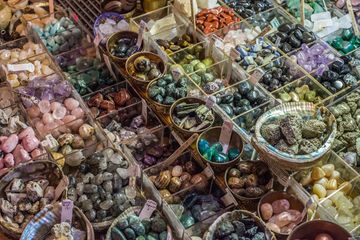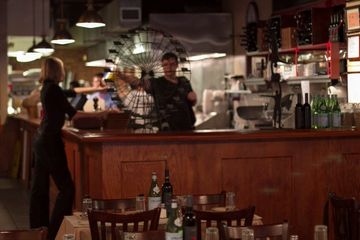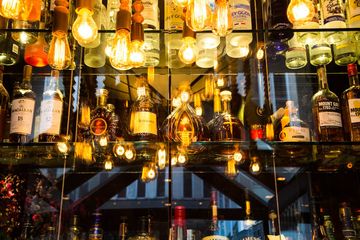The entrance to Sushi By Bou consists of wooden steps leading down to an unmarked doorway adorned with unchecked graffiti. Inside, the Manhattan Sideways team found a space that it is barely larger than one's average bedroom. The décor is an explosive battle between colorful Japanese designs and minimalist, mid-century modern designs. Four barstools sit in front of a counter, behind which works the American-born David Bouhadana. David, himself, is part of the allure: his looks and roguish irreverence evoke the archetype of the wisecracking best man at a wedding. The crisp Japanese quips that he often fires at the grim-faced guest chef working next to him, who often responds with a boisterous laugh, hint that David is as comfortable in that language as he is in English. Indeed, his omnipresent half-smile and conversational, thinking-out-loud tone show him to be truly at home behind the sushi counter. The obvious question is probably how David found himself there wearing a hachimaki headband. He is quick to respond to with a phrase that, coming from anyone else, would seem cliché - “I didn’t choose sushi, sushi chose me. ” In his case, this is simply a statement of fact: on his first day as an eighteen-year-old waiter in Boca Raton, the chef tossed him an apron, proclaiming, “Tonight, you make sushi! ” David found himself suddenly thrust into a new, fast-paced world, one that demanded not only the self-discipline and love of labor required to cope with a rigorous routine but also the drive to push oneself and to constantly improve on yesterday. As it turns out, he had what it took, and he soon found himself on a one-way-trip to Japan. Studying under his sensei’s wing, he was quickly accepted by the local talent as he developed his own techniques and hand movements. His master, whose life was saved by American medicine, gave David a mission along with the tutelage: to repay the west by teaching them about sushi. “Sushi is an educated food, ” he explained to us as he rapidly prepared uni. “The more you know, the more you’ll enjoy it. ” According to David, western appreciation for food cannot compare with that of Asian cultures. “Food is simply more important in Asia, ” he claimed, describing how food in the Far East is in tune with even the turning of the seasons. He calls his somewhat educational approach "Sushi for the People. " It’s not inexpensive, as $50 will earn one an omakase selection, which in this case is a spread of twelve sushi types that David called the "New Basic. " However, David pointed out that compared to similar New York City fare, "it’s a steal, " and it complements the approachability David strives for. He elaborated by telling us that he also carefully selects guest chefs to be welcoming and approachable, deliberately avoiding the "tough angry chef. " He wants customers to feel encouraged to ask questions, which necessitates the intimate design of the restaurant. As for why he chose New York City, David thinks the accepting environment and pervasive mindset of equality will draw the type of person who is open to learning about other cultures. But he also chose the city for what he describes as a “wild, crazy, allure, ” a fast paced testing ground where one can come with nothing but become whoever they want. David chose sushi.
